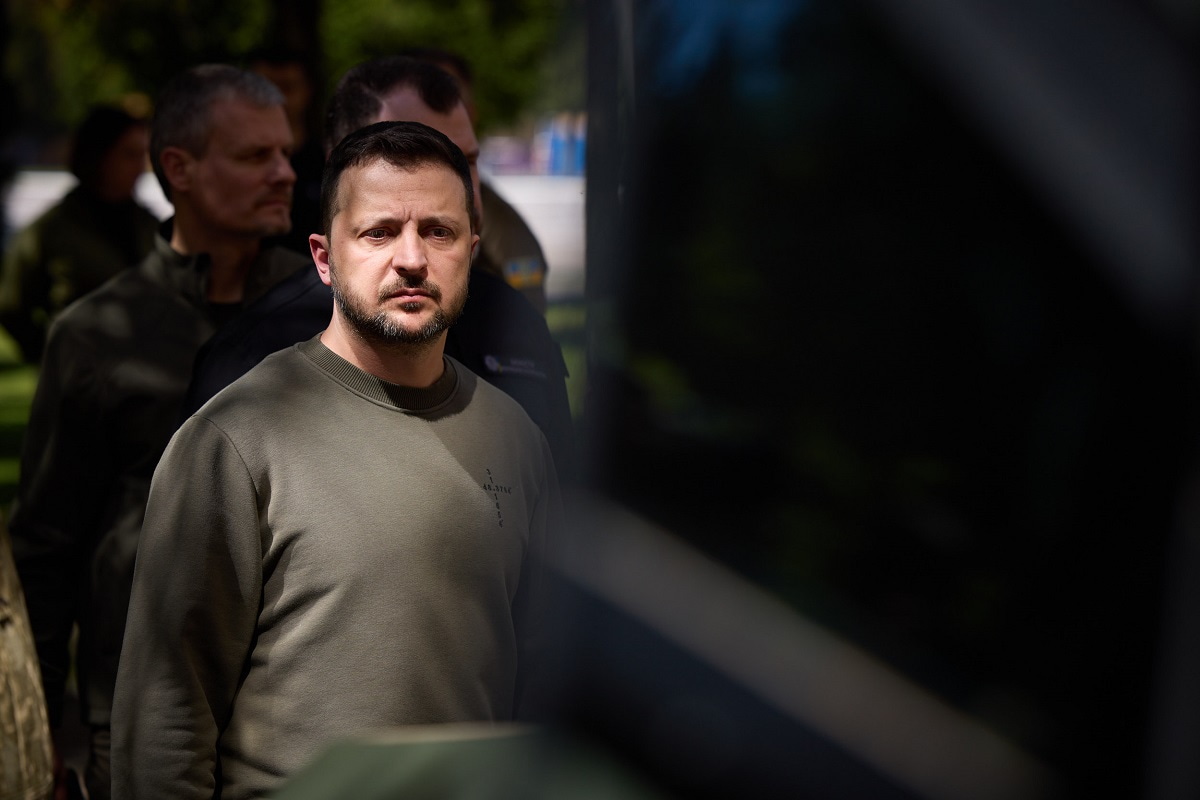In conducting foreign policy, experienced leaders can become pompous know-alls. They have their talking points down by heart, greet other leaders by their first names, sleep easily on aircraft. At international conferences, they can keep a straight face wearing loud shirts, and tolerate the formulaic segments of international meetings in return for the pageantry and publicity dividends.
New leaders, though, might stand in need of a few tips.
Conventional political skills do not readily transfer to war, where authenticity, determination and perseverance are at a premium.
The most obvious, but obviously important, advice is: never forget where you came from. Many of us sentimentally re-watch Love Actually each Christmas. Neophyte leaders should focus on Hugh Grant’s gleefully boastful speech as British prime minister about his native land: “we may be a small country, but we’re a great one, too”.
That speech is not merely smart and witty. Even for countries that cannot boast Churchill, Harry Potter or David Beckham’s left foot, the speech encapsulates much of what any electorate wants any leader to think about the world. We are different, we are special, and we should come first.
Leaders not deigning to re-visit Love Actually should take as their point of reference Lord Palmerston’s observation (1848) that “we have no eternal allies, and we have no perpetual enemies. Our interests are eternal and perpetual, and those interests it is our duty to follow.” Having leaders cooperate and show compassion matters, but those abiding interests are always going to rank front and foremost in the public’s priorities.
Not even Canadians or Scandinavians elect their leaders primarily on the basis of their commitment to good global citizenship or the rules-based international order. “It’s the economy, stupid,” was not merely a reminder for Bill Clinton in his 1992 campaign, but a salutary warning to leaders anytime, anywhere. Almost every electorate is likely to be suffering a cost of living crisis, and wants its leaders to do something practical about helping before they do much else.
All politics remains local. Even a strategic tragic like Richard Nixon, who revelled in immersing himself in foreign policy conundrums, considered how each initiative would “play in Peoria”. (There are still only 113,000 – supposedly representative – people living in Peoria, Illinois.) This rule extends to holidays: Hawk’s Nest trumps Hawaii, and Torquay is a safer bet than Tuscany.

The second counsel for a novice leader is: remember how little the electorate knows or cares about the rest of the world. There are a few exceptions to that rule, war being the main one. Before taking power, Churchill railed against socialism as Zelenskyy inveighs against corruption, but the management of war subsumed any domestic agenda for either man. Other leaders have been undone by mismanaging war, whether Bush and Blair, or Menzies and Chamberlain. Conventional political skills do not readily transfer to war, where authenticity, determination and perseverance are at a premium.
Absent a war, though, public complacency is not easily punctured. How long can popular interest be sustained in events faraway, in floods in Pakistan, famine in Sudan, a Taliban takeover in Afghanistan, or the plight of the Rohingya in Myanmar? How many Australian voters could name, say, a quarter of the leaders of either ASEAN or the Pacific Islands Forum?
Other points of advice for new leaders flow from those two precepts.
Despite the need for coalition building and the benefits in shared values, identifying your purposes or interests with other countries is often an illusion.
Despite the need for coalition building and the benefits in shared values, identifying your purposes or interests with other countries is often an illusion. Menzies shamed himself with his grotesque sycophancy towards the English. A sequence of Australian politicians should be abashed at having boasted that Australia had fought “shoulder to shoulder” with the United States in every war for a century – as though Vietnam and Iraq were just causes.
Leaders should not exaggerate their personal relations with counterparts. Despite compulsory “grip and grin” meetings, most exchanges between leaders are transactional and instrumental. In foreign policy, nobody is given something for nothing. Surely a practical, unsentimental exchange among leaders is preferable to Bush demeaning his British counterpart by calling out “Yo, Blair” or Berlusconi trying to ingratiate himself with others by fawning and gesticulating during the staging of an official photograph.
Similarly, leaders should note that good relations with another country are not an end in themselves. Any supposed great and powerful friends will certainly have their own distinct, divergent interests to protect. After Love Actually, leaders might re-read Thucydides’ passages on the Melian dialogue: “the strong do what they can and the weak suffer what they must”.
If any leader were to suffer from impostor syndrome (as, say, Canada and Italy might at the G7), then such a sentiment should be ignored. International leaders have always been a pretty eclectic, eccentric bunch. A clear, strong mandate at home is sufficient qualification for inclusion. Those whose “caper is statecraft”, to borrow a phrase from Paul Keating, should possess enough chutzpah to seem to the manor born.

